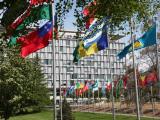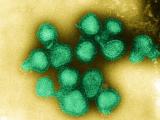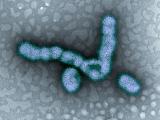Apr 10, 2006 (CIDRAP News) – Recognizing that an influenza pandemic may disproportionately affect refugees and internally displaced people, the World Health Organization (WHO) has issued guidelines for humanitarian organizations working with such populations.
The April 7 guidance document, "Pandemic influenza preparedness and mitigation in refugee and displaced populations," recommends that each humanitarian agency develop a locally relevant pandemic preparedness plan that addresses current capacity and anticipated needs. The efforts should be linked with national government plans as well.
The WHO notes that internally displaced people and refugees may be especially at risk for several reasons, including:
- Overcrowding
- Poor healthcare access
- High prevalence of malnutrition
- High incidence or prevalence of communicable disease
- Remote or conflict-prone locations
- Insufficient surveillance
- Possible exclusion from a nation's flu planning and response
- Under-trained or ill-equipped staff
The health woes one might find among people forced from their homes include malnutrition and co-infection with illnesses such as HIV or malaria, but WHO said it is not clear what impact such conditions would have on a pandemic virus.
WHO also calls on humanitarian organizations to help in its mission to identify clusters of flu cases and contain them quickly. The document contains details on how to detect cases and report them. It also offers tips on how to collect, store, and transport samples, including suggestions that may be beyond the capability of some humanitarian groups or some locales. For example, the agency says workers should wear full personal protective equipment (PPE) and should store and transport samples in dry ice, using specialized shipping containers and protocols.
In addition, the WHO document provides suggestions for early-warning surveillance and response, social mobilization to improve risk communication and health education, health facility planning, and protection of staff. Annexes include checklists, sample messages, infection control procedures, and advice on using antiviral drugs.
See also:
WHO's "Pandemic influenza preparedness and mitigation in refugee and displaced populations"
http://www.who.int/diseasecontrol_emergencies/HSE_EPR_DCE_2008_3rweb.pdf


















